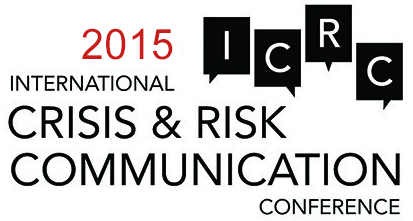
Freelance Consultant
Switzerland
Annina Buehler was born in the U.S. and brought up in a village close to Zurich, Switzerland. It was during her bachelor studies in Media and Communication Sciences that she developed an interest in communication as a tool for creating a bridge between a corporation and its relevant publics. She received her master degree in Corporate Communication at the Università della Svizzera Italiana in November 2012, graduating with a master thesis on argumentative strategies of sponsors who stand by athletes involved in off-field transgression. During her graduate program, she has spent one semester as an exchange student at Nanyang Technological University in Singapore. For her this experience has been a unique life and educational opportunity. It has furthermore provided her with the invitation to present a paper of the image reinvention of Swiss International Airlines after the company’s crisis at the CCI conference in New York in June 212.
Working in the Communication Department of the Swiss Federal Department of Defense, Civil Protection and Sport, she has been gaining more valuable insights into the different aspects and power of communication, especially during crises. This has also lead her to become a member of the Swiss Association of Crisis Communication.
2014
Breakout Session: Argumentative strategies of sponsors who stand by athletes involved in off-field transgression: The cases of Tiger Woods and Michael Phelps*
Every year, companies across the world spend increasing amounts of money on sport sponsorships (IEG, 2012), often involving the sponsoring of celebrity athletes. Among others, one of the main reasons to sponsor athletes is to benefit from a positive image transfer and thus associate the sponsoring company with some of the traits possessed by the sponsored athlete (Chanavat et al., 2010). However, as testified by the cases frequently reported in the news, often times such athletes engage in transgressions (e.g., drug use, violence, sexual abuse) that can potentially threaten the image of the company because of its association with the misbehaving athlete (Sassenberg, & Johnson Morgan, 2010). Because of the risks following from such transgressions, many companies decide to terminate their sponsorship agreements with the misbehaving athlete. However, other companies decide to remain with the athlete, thus maintaining the sponsoring agreement. How do these companies justify the decision to continue sponsoring the transgressing athlete?
By drawing upon the literature on sport sponsorship, image and reputation, and crisis communication, this paper examines the argumentative strategies used by corporate sponsors when justifying the choice of remaining with a professional athlete who has been involved in an off-field transgression. In undertaking this research, two case studies of athletic misbehavior off the field (i.e., Tiger Woods and Michael Phelps), were examined through an analysis of the related news articles and videos that followed the scandals.
As a result of the analysis, we identified four main argumentative strategies – the first two already identified by previous research in the field of crisis communication (Benoit, 1995; Coombs, 2007). First, the minimization strategy argues through downplaying the incident and its severity. Second, the reminder strategy, emphasizes the great sport performances of the concerned athlete, and thereby reminds to relevant publics of the athlete’s outstanding past achievements. Third, the business approach strategy focuses its arguments on using the business strategy of the company and the valuable collaboration with the athletes. Finally, the relationship strategy highlights the intense and valuable association between the two parties (i.e., company and sponsored athlete).
After discussing the four identified strategies in relation to existing research, we conclude the paper by highlighting relevant implications for practice, theory as well as main limitations and directions for future research.
*Annina Buehler, Simone Mariconda and Francesco Lurati co-authored this paper. Annina Buehler will be presenting.


